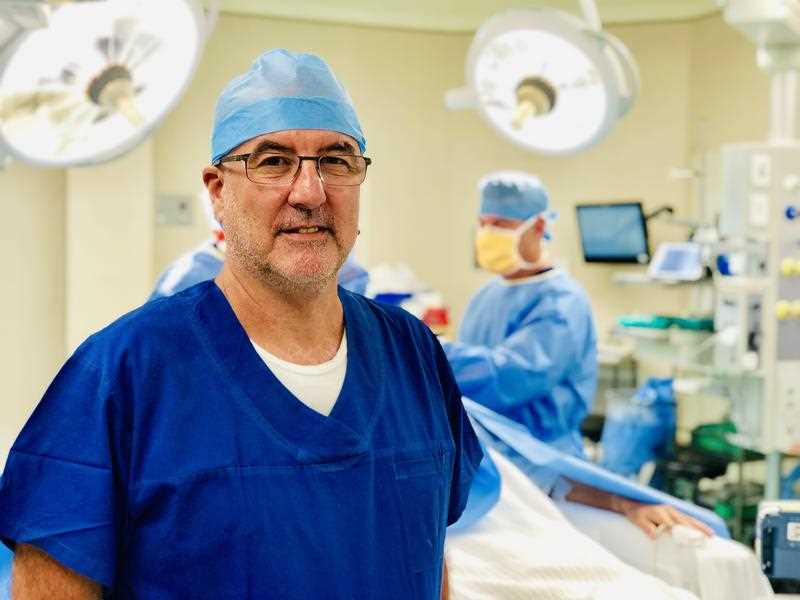Parkinson’s disease sufferers will be able to live more freely and independently thanks to world-first technology enabling doctors to remotely control brain function.
Adjustments to deep brain stimulation therapy for patients can now be made from anywhere on the globe, thanks to a breakthrough in wireless technology.
Abbott’s Neurosphere Virtual Clinic will ease the burden on doctors, patients and carers, reducing the time and cost of face-to-face consultation and giving patients the same highly personalised assessment and care.
“We can remotely and securely change human brain function completely wirelessly from anywhere in Australia, and potentially, the world,” said neurologist and world expert in Parkinson’s disease Professor Peter Silburn, who led the initial proof-of-concept trial in Brisbane.
“This is a huge leap forward in patient care. This is the most exciting development in the field I have seen since the first patients received deep brain stimulation for Parkinson’s.”
Parkinson’s disease is a neurodegenerative disorder effecting about 80,000 Australians, with symptoms including slow and stiff body movement, weakness, tremors and problems with balance, mood and speech.
Deep brain stimulation involves implanting two electrodes into the brain which are connected to a pulse generator in the chest.
The result is stimulation of the functions which control movement, significantly reducing symptoms.
The wireless technology, developed by Abbott, has been approved for use in Australia, Europe and the US from this week and will be rolled out Australia-wide in 2022.
The technology may also be used in cardiac devices and infusion pumps reducing “human-machine interface”, Prof Silburn says.
Queensland man Clive Couperthwaite, 70, was the first person in the world to trial Neurosphere.
He lives an hour and half away from his specialist in Brisbane and needs to book a ferry to get there, costing him $60 each way.
Mr Couperthwaite says symptoms of Parkinson’s can be scary and without this new tech he would likely be in a nursing home.
“Now I can manage Parkinson’s and live life independently,” he said, having recently bought himself a kayak.
“I can travel overseas. It gives me so much freedom than most people with my condition would ever have.
“Now I know that if I need adjustments and to connect with my doctor, I can do that from anywhere.”
The tech will be particularly useful for rural patients, kilometres from specialists and who may need to travel for hours to see them, Prof Silburn says.
“They may have to … organise a care flight which costs thousands of dollars.
“A carer might need to take a day off work to travel with the patient and there may be accommodation costs.
“Being able to connect with physicians from home or while they are travelling gives patients independence and predictability, which is so important for quality of life.”
AAP



